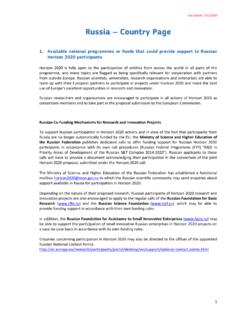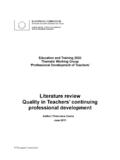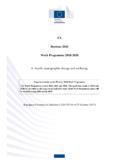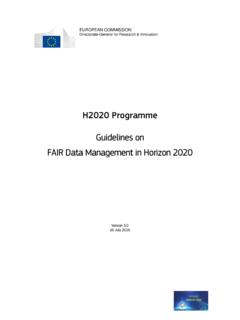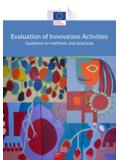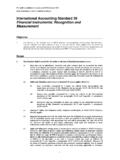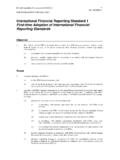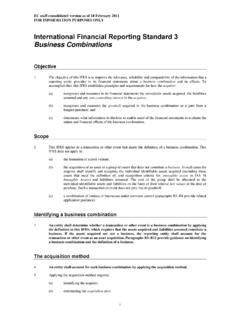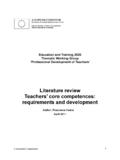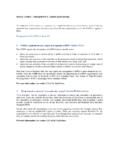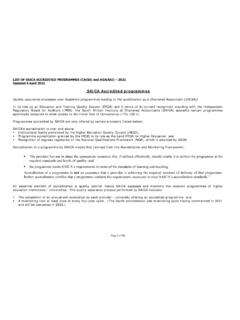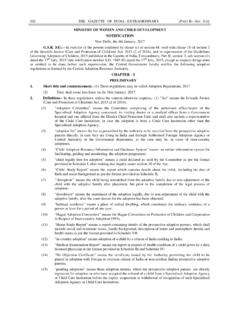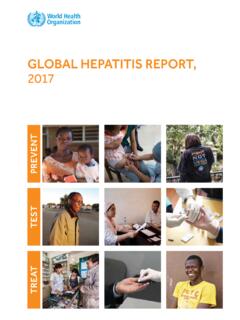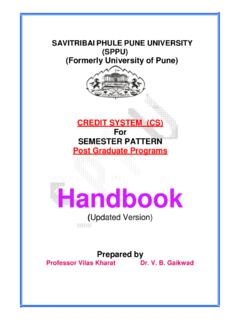Transcription of Competence Framework 2017 - European Commission
1 CompetenceFramework 2017 European MASTER S IN TRANSLATIONTRANSLATIONTECHNOLOGYPERSONAL AND INTERPERSONALLANGUAGE AND CULTURESERVICE PROVISIONEMT Competence Framework - 20172 ForewordThe European Master s in Translation network first published its Framework for translator and translation Competence , including the well-known EMT Wheel of Competence , in January 2009. This has now become one of the leading reference standards for translator training and translation Competence throughout the European Union and beyond, both in academic circles and in the language industry.
2 Almost ten years on, the basic principles laid down in 2009 still stand, but it is time to reconsider the Framework in the light of the changes which have affected both the language industries and European universities. In the translation industry, technological change has had an ever-increasing impact on the way translation services are performed, though human intelligence, knowledge and skills are still the key factors in delivering quality translations and the growing range of language services which translators and translation companies can provide.
3 Market needs have also evolved, with the continuing expansion of English as a lingua franca creating new needs that can only be met by reversing the traditional mother tongue principle in some translation environments. Simultaneously, artificial intelligence and social media have considerably changed people s relation to communication in general and translation in particular, with machine translation applications and other language tools now commonly available on desktop and mobile devices. This is gradually impacting the translation process and many translation markets, and has changed the perception of translation among the general public and among translation studies students and graduates.
4 Technological and societal changes such as these need to be taken on board in academic translator training programmes, so that future graduates become aware of both the challenges and opportunities that they represent, and can adapt their skills and practices October 2016, with future translation graduate employability firmly in mind, the EMT Board was given the remit of producing a new EMT Competence Framework . The new Framework was expected to embody the founding principles of the EMT network, while incorporating the key competences and skills required of future translation graduates.
5 The remit also included producing a simple, functional Competence Framework that could be used to assess the delivery of a common set of learning outcomes by universities wishing to join the EMT network in the next round of applications. Following a consultation process involving the network membership and language industry stakeholders, a draft Framework was produced. This has now been adopted as the EMT Competence Framework for 2018-2024. December 2017 , Daniel Toudic and Alexandra Krause on behalf of the EMT BoardEMT Competence Framework - 20173 This Competence Framework aims to consolidate and enhance the employability of graduates of Master s degrees in translation throughout Europe.
6 It is based on the EMT s founding principles set out by the Expert Group in January 2009. It also takes into account the research outcomes on translation and translator Competence reported by the translation studies research community and the changes that have affected the language services industry since : The terms Competence , skill, knowledge and learning outcomes are used here in accordance with the European Qualifications Framework ( )Skill: means the ability to apply knowledge and use know-how to complete tasks and solve problems.
7 Competence : means the proven ability to use knowledge, skills and personal, social and/or methodological abilities, in work or study situations and in professional and personal development. Knowledge: means the outcome of the assimilation of information through learning. Knowledge is the body of facts, principles, theories and practices that is related to a field of work or study. Learning outcomes: means statements of what a learner knows, understands and is able to do on completion of a learning process, which are defined in terms of knowledge, skills and Competence .
8 EMT Competence Framework - 20174 This Framework does not claim to provide a comprehensive description or model of all the competences, skills and knowledge that translation graduates should acquire. It does not, for instance, include the theoretical knowledge or the generic research skills that are an integral and important part of many advanced translation studies programmes. As in the original Framework , it sets out a common set of learning outcomes for EMT Master s degree programmes, described in terms of the general competences and specific skills that their graduates are expected to possess1.
9 Individual programmes may, of course, deliver a much wider range of competences, skills and knowledge in areas that are not included in this Framework is based on the premise that translation is a process designed to meet an individual, societal or institutional need. It also recognises that it is a multi-faceted profession that covers the many areas of Competence and skills required to convey meaning (generally, but not exclusively, in a written medium) from one natural language to another, and the many different tasks performed by those who provide a translation Framework therefore considers that translator education and training at Master s degree level should equip students not only with a deep understanding of the processes involved, but also with the ability to perform and provide a translation service in line with the highest professional and ethical defines five main areas of Competence .
10 1 It assumes that the aim of Master s degree programmes is to teach a combination of knowledge and skills, which will enable students to achieve the competences considered essential for access to the translation industry and to the wider labour AND INTERPERSONALLANGUAGE AND CULTURESERVICE PROVISIONEMT Competence Framework - 20175 Within each of these areas, a number of skills are deemed to be essential or important within the context of a Master s degree in translation. Although each of them can be viewed separately, and the relevant skills can be applied to different professions beyond the translation industry, the five areas defined below should be considered as complementary and equally important in providing the translation service, which is the ultimate goal of the translation Framework does not attempt to define different levels for each of the areas of Competence .
